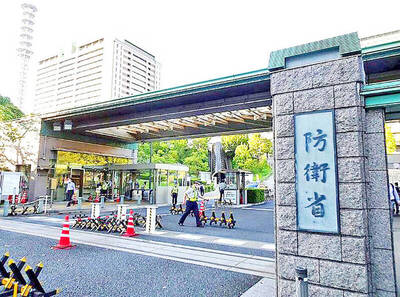A man was found dead on Tuesday at an Internet cafe in Taipei after playing computer games for 24 hours.
Preliminary investigations indicate cardiac arrest was the likely cause of death.
An employee at the Internet cafe said the 58-year-old man, surnamed Chen (陳), entered the cafe late on Monday night and was still there, playing computer combat games, late on Tuesday night.
The employee said Chen was a regular customer and he usually paid NT$500 for a seat for 24 hours.
Chen did not pay for additional time and was still sitting in his seat on Wednesday morning, staff said.
“We thought he was tired from playing and was just sleeping, so we did not disturb him,” an employee said.
However, when he checked on Chen at about midday on Wednesday, he found that Chen was not breathing and his body was stiff.
“There were other customers there and everyone thought he was just sleeping. We had no idea he had died,” the employee said.
A spokesman for Taipei City Police Department’s Zhongzheng First Precinct said preliminary investigations showed there was no sign of foul play, and it was likely a simple case of accidental death, due to cardiac arrest or cardiovascular conditions.
It was the second case of alleged death from prolonged game playing at an Internet cafe in six months.
A 37-year-old woman surnamed Chu (朱) died while sitting in front of a cafe computer in Hsinchu City premise on Aug. 23 last year.

LOOKING NORTH: The base would enhance the military’s awareness of activities in the Bashi Channel, which China Coast Guard ships have been frequenting, an expert said The Philippine Navy on Thursday last week inaugurated a forward operating base in the country’s northern most province of Batanes, which at 185km from Taiwan would be strategically important in a military conflict in the Taiwan Strait. The Philippine Daily Inquirer quoted Northern Luzon Command Commander Lieutenant General Fernyl Buca as saying that the base in Mahatao would bolster the country’s northern defenses and response capabilities. The base is also a response to the “irregular presence this month of armed” of China Coast Guard vessels frequenting the Bashi Channel in the Luzon Strait just south of Taiwan, the paper reported, citing a

A total lunar eclipse, an astronomical event often referred to as a “blood moon,” would be visible to sky watchers in Taiwan starting just before midnight on Sunday night, the Taipei Astronomical Museum said. The phenomenon is also called “blood moon” due to the reddish-orange hue it takes on as the Earth passes directly between the sun and the moon, completely blocking direct sunlight from reaching the lunar surface. The only light is refracted by the Earth’s atmosphere, and its red wavelengths are bent toward the moon, illuminating it in a dramatic crimson light. Describing the event as the most important astronomical phenomenon

ENHANCING DETERRENCE: Stationing the missiles in Kyushu would allow Japan to cover waters near Taiwan and China’s coastal areas without any logistical difficulties Japan is to deploy extended-range anti-ship missiles at a Ground Self-Defense Force base in Kumamoto to bolster its defenses, the Yomiuri Shimbun reported on Saturday. The upgraded Type 12 surface-to-ship missile, with a range of more than 1,000km, would be capable of striking targets in the Taiwan Strait and along China’s coast. Originally limited to a few hundred kilometers, the Type 12 was recently modernized ahead of schedule. Deployment, initially slated for next year, has been accelerated after the upgrade was completed sooner than expected, the newspaper said. Stationing the missiles in Kyushu would allow Japan to cover waters near Taiwan and

The presence of Taiwanese politicians at China’s military parade tomorrow would send the wrong message to Beijing and the international community about Taiwan’s sovereignty and democracy, a national security official said yesterday. China is to hold the parade tomorrow to mark the 80th anniversary of Japan’s surrender in World War II. By bringing together leaders of “anti-West” governments such as Russia, North Korea, Iran and Belarus, the parade aims to project a symbolic image of an alliance that is cohesive and unbending against Western countries, the national security official said, speaking on condition of anonymity. Former Chinese Nationalist Party (KMT) chairwoman Hung Hsiu-chu